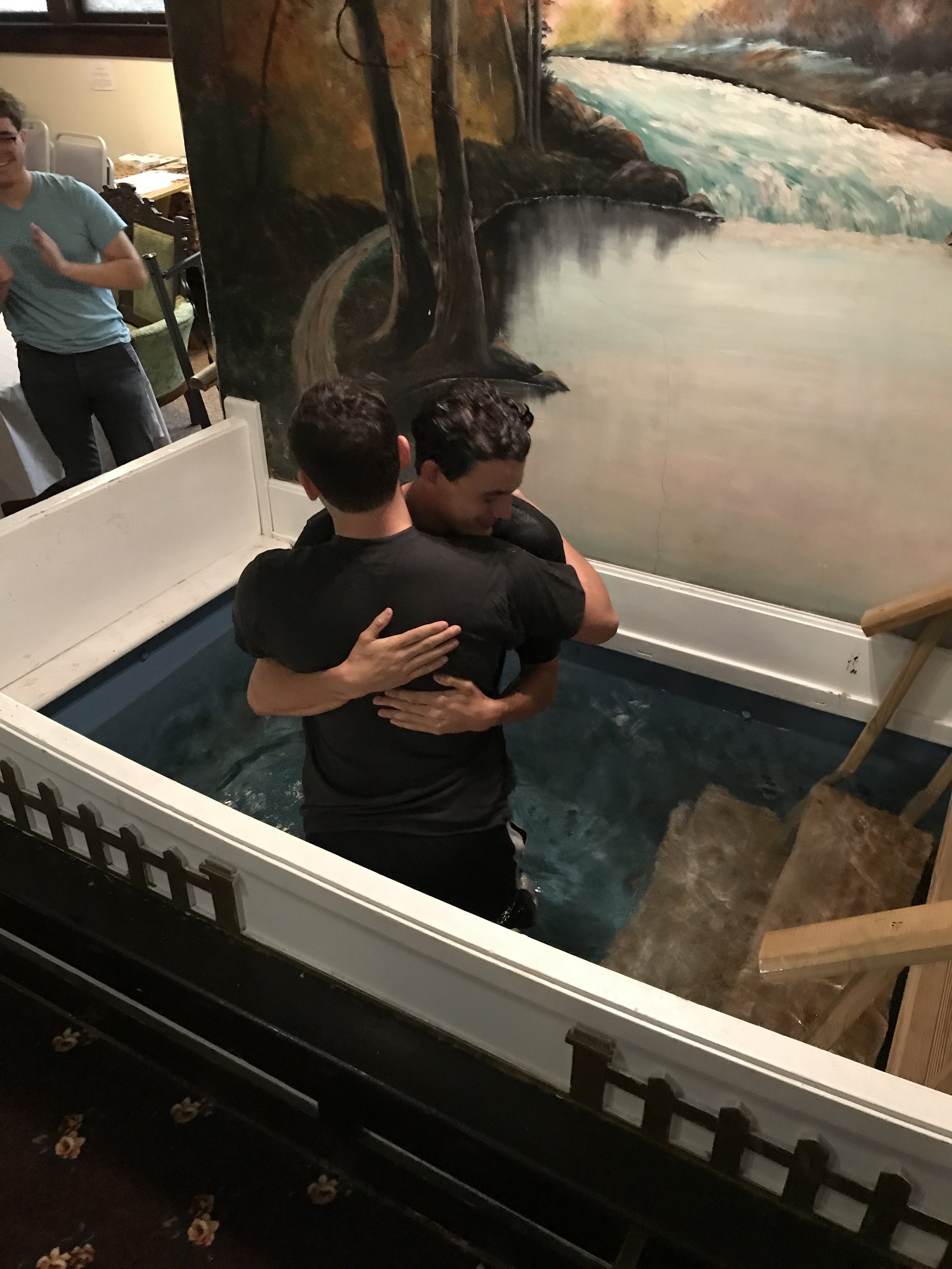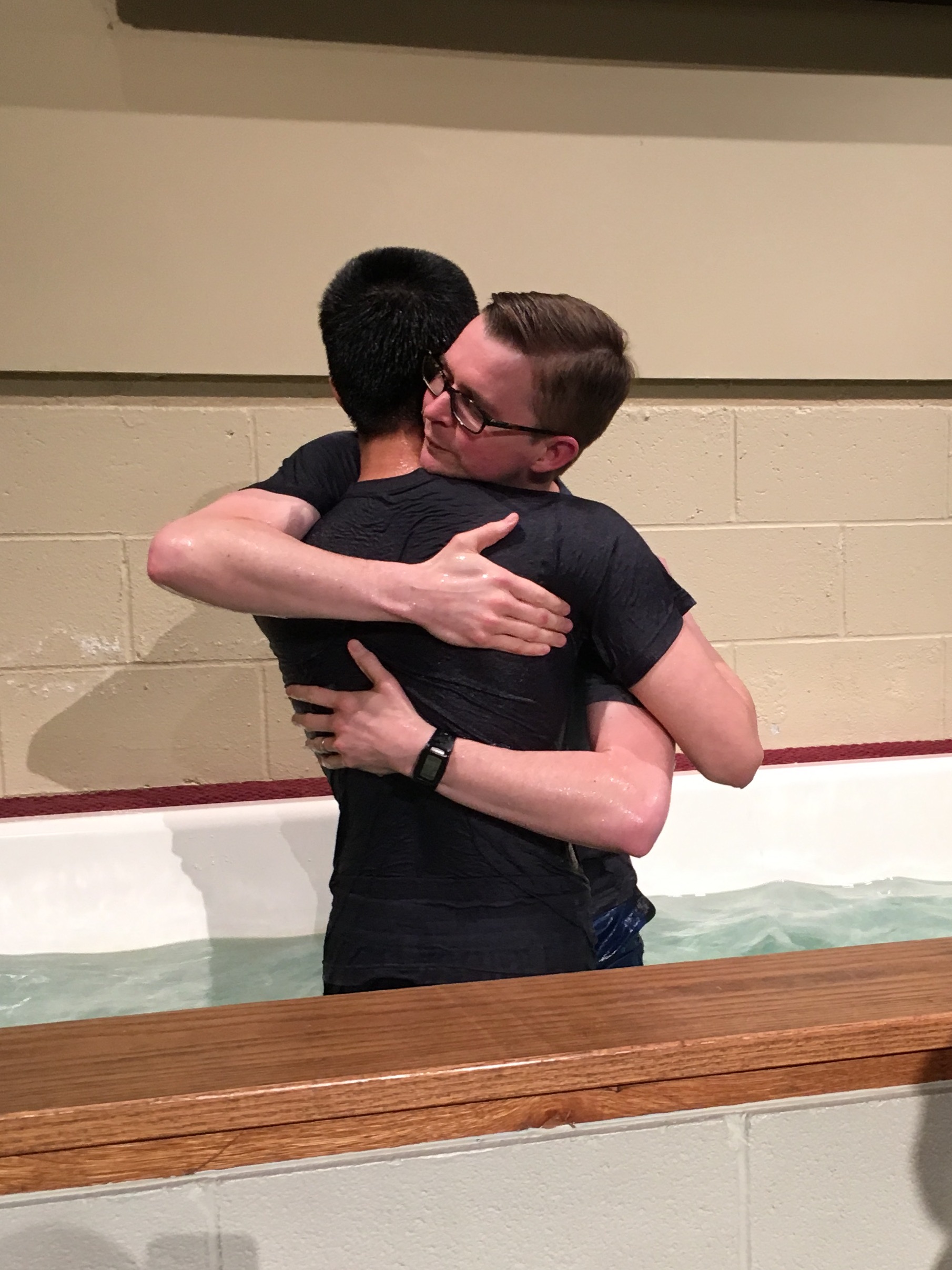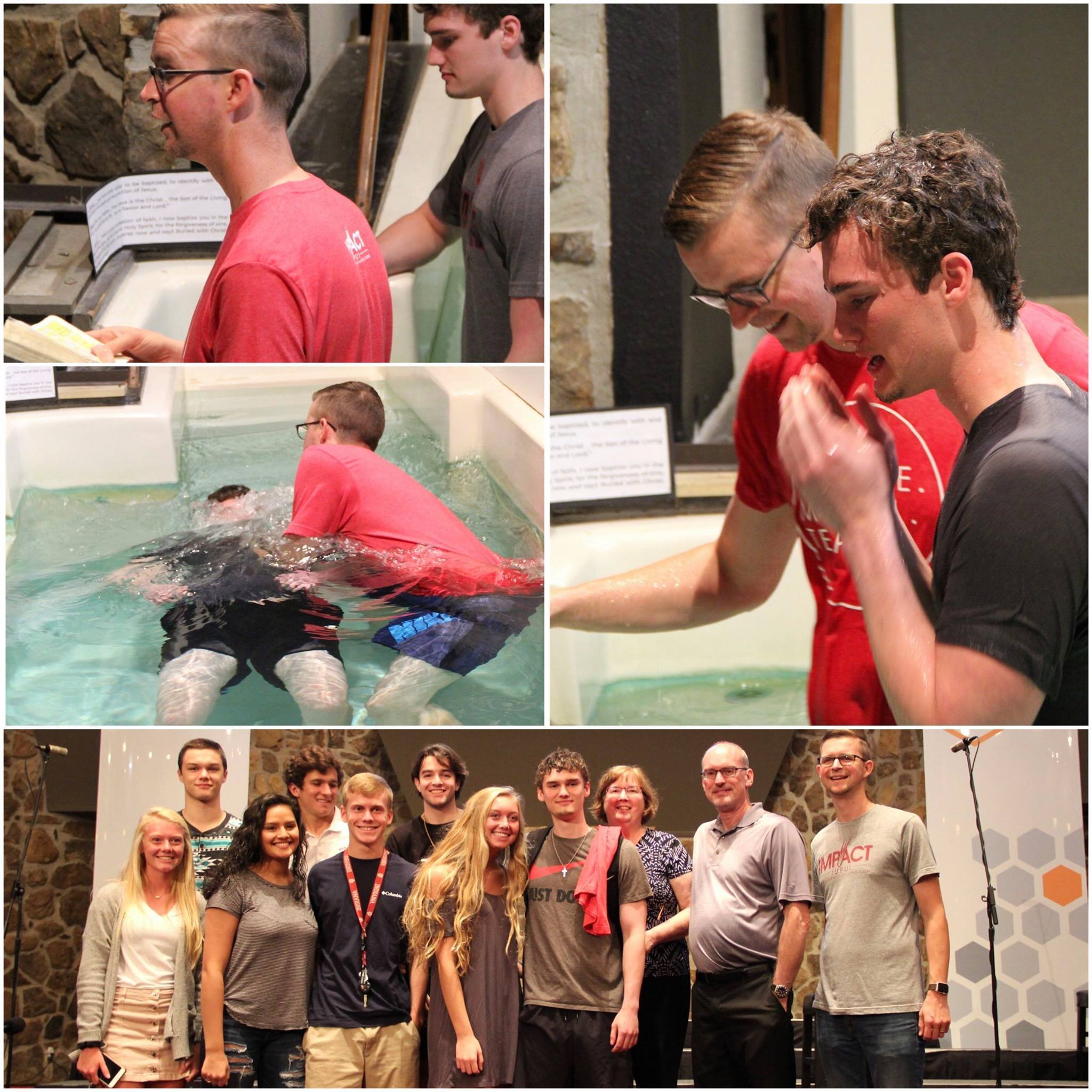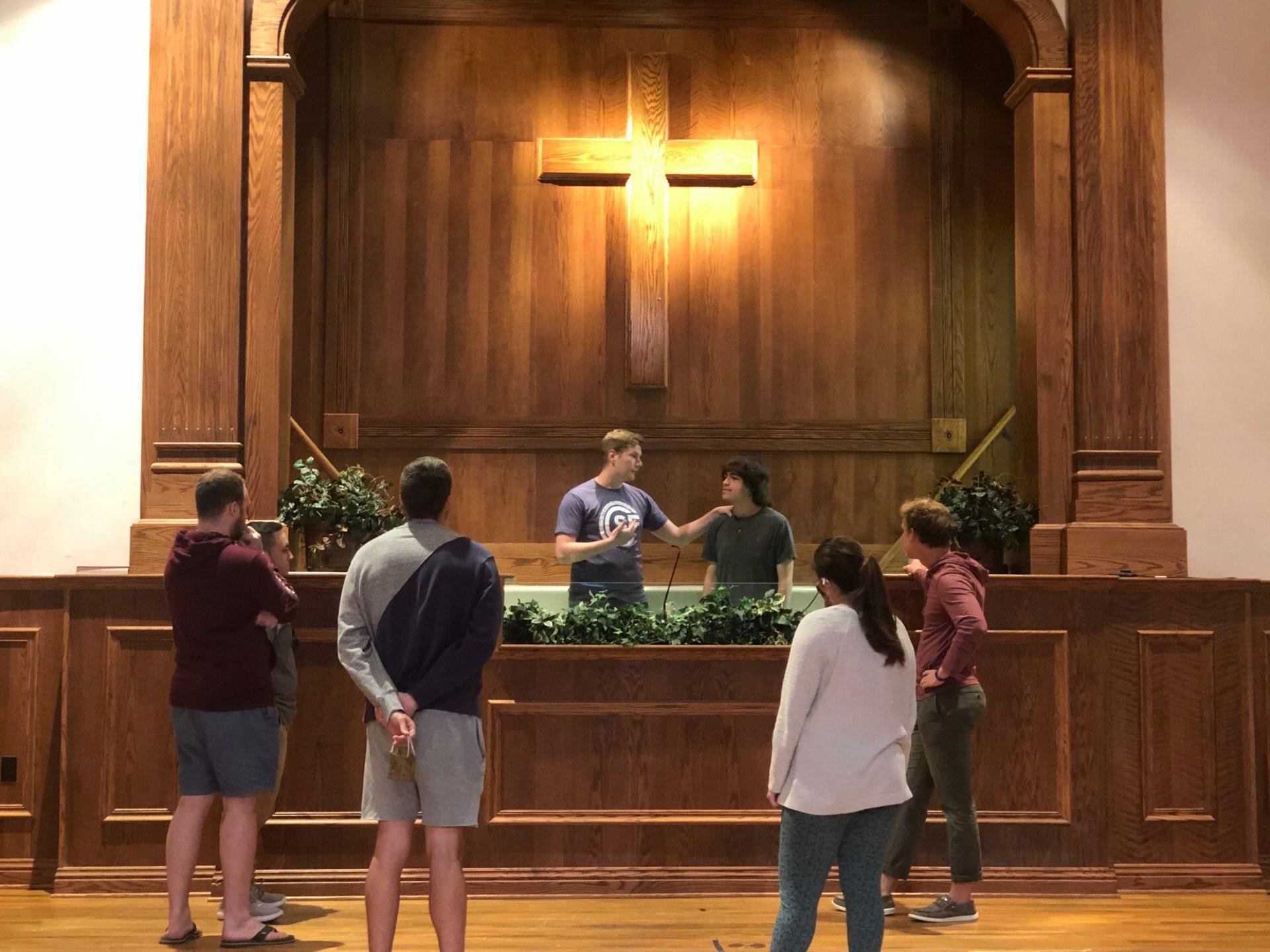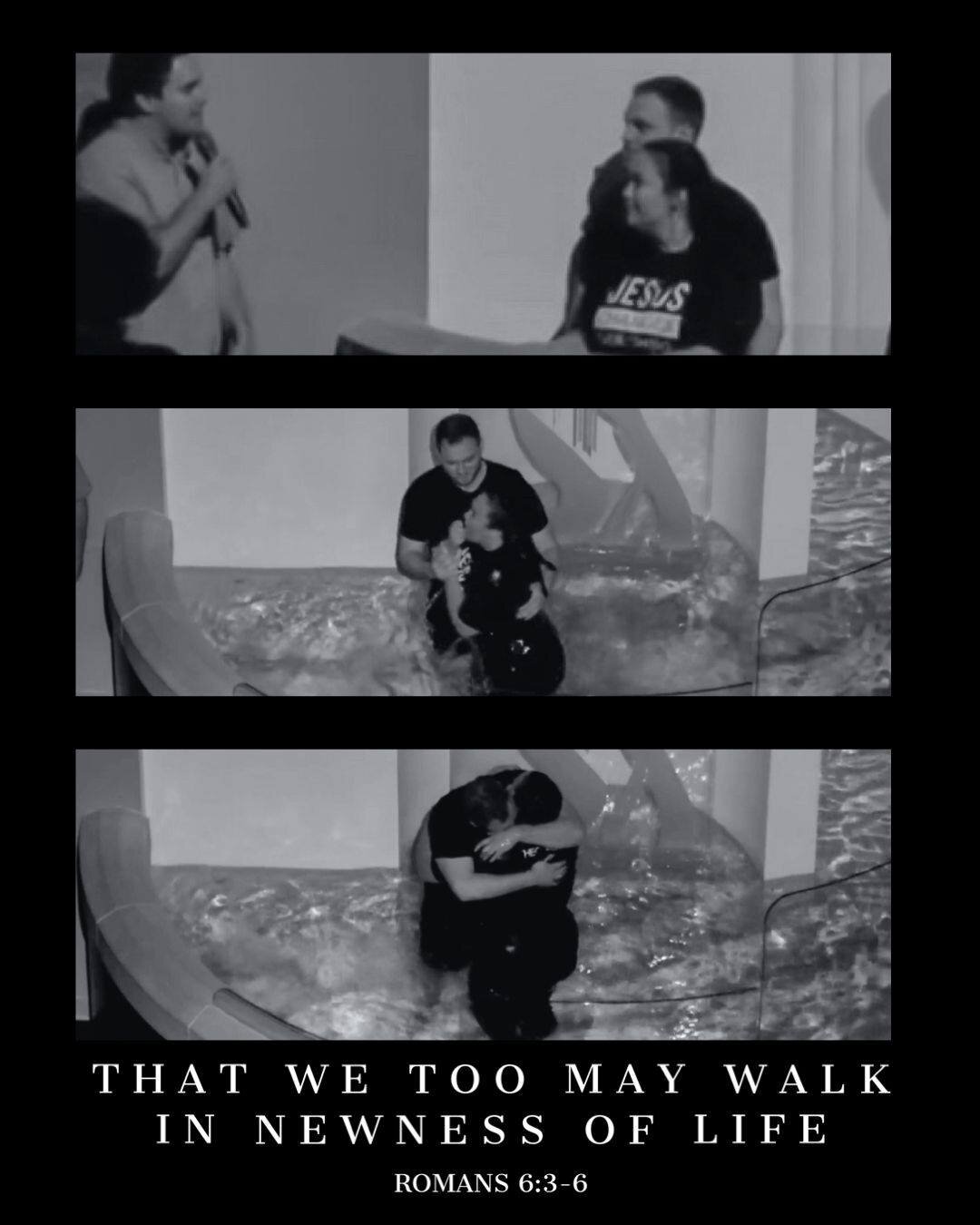Baptism
Baptism is the starting line of faith. We all have next steps that Jesus asks us to take in the process of surrendering to His will. Baptism is one of the steps that Christians have taken for the past 2000 years. Maybe you're wondering if it’s your next step? If so, keep on reading to see what the flow looked like in the New Testament when someone initially came to faith in Jesus.
We would encourage you to place yourself at whatever point you fit into this flow. Jesus died on the cross and was raised to life so that we too might walk in newness of life (Romans 6:1-6). Have your Bible or Bible App handy as you read the following, as there will be a lot of references to check out.
Hear
In the New Testament portion of the Bible, we see that hearing is the first step in anyone coming to put their faith and trust into Jesus for salvation. One of the most powerful, albeit short, verses on this is found in Romans 10:17: "Faith comes by hearing and hearing by the words of Christ." Maybe you're reading these words and thinking "I've heard Jesus my entire life" or maybe you're thinking, "I’m really just hearing this for the first time." Wherever you find yourself, this is the foundation.
Hearing the good news that Jesus died for you is the ultimate foundation of our faith. The Son of God became flesh and dwelt among us (John 1:14) and died on the cross, taking in his body the sin of all mankind (1 Peter 2:24). Why? Because he loves you. He has always loved you, and he wants you to have the best life possible, both now and for eternity.
Believe
It’s one thing to hear about something, it’s quite another to believe it, to put your trust in it. This is the threshold that many fail to cross. They hear about Jesus' love for them their entire lives, yet fail to really believe it. To believe is not to simply acknowledge something to be true (though that is part of it). To believe is to place your trust in Jesus for salvation. It’s to say, "These aren't just words, they are the words of eternal life." (see John 6:68).
To quote Brook Fraser, "To believe is to begin." It’s the breakthrough. From the point of belief the following stages came quickly in the New Testament (see Acts 8:26-38). Jesus said, "He who believes and is baptized shall be saved." (Mark 16:16) This shows us that belief in Jesus is a predicator to baptism. The Apostle Paul puts it this way in Romans 10:9-10, "...that if you believe in your heart God raised him (Jesus) from the dead, you will be saved...for it is with your heart that you believe and are justified." Buckle up, because God isn't done with us quite yet.
Repent
Next, we need to decide if we really are going to let Jesus change our minds (Romans 12:1-2). Do we really believe that the Christian life, following Jesus, is the best life possible? To repent means simply to return. It also can mean to have a change of mind that in turn leads to a change of action. Peter, in Acts 3:19, says it so clearly, "Repent, then, and turn to God, so that your sins may be wiped out, that times of refreshing may come from the Lord." Here we see that turning from our life of sin and toward a life of following Jesus is not restricting, it is refreshing. It is freeing to conform our minds to the good news of Jesus.
In Acts 2:38, we see that repentance was also a predicator to baptism. Have we counted the cost? Have we considered what the narrow path really has in store for us? (see Matthew 7:13-14). Jesus also tells a parable that is super helpful in getting our minds around the idea of repentance in Luke 14:25-34. Following Jesus is a lifetime commitment. It isn't easy, but it’s worth it. It doesn't make us popular, but it does make us proven in Jesus.
Confess
Confession is simply to profess with our mouth what God has been doing in our hearts. It’s to verbalize the fact that we have come into alignment with his will and the identity of Jesus. Romans 10:9-10 also says "that if we confess with our mouth, Jesus as Lord... it is by confessing that you are saved."
Christians, for centuries, have predicated their baptisms with the same confession that Peter initially made in Matthew 16:15-16. Jesus asked him, "Who do you say that I am?" and Peter replied, "You are the Christ, the Son of the living God." Jesus isn't just wanting to be our Savior, He also needs to become our Lord, our master. He is the One that we need to surrender complete control. So, we still say today, "I believe, that Jesus is the Christ, the Son of the living God, and I accept him, as my Lord and Savior."
Baptism
It’s at this point that we can almost hear Ananias saying the same thing to us as he said to Paul in Acts 22:16: "Now, why do you delay? Get up. Be baptized. Washing away your sins. Calling on His name." What an excellent question for us to ask ourselves if we are reluctant to be baptized. "Why am I delaying?" "What is holding me back from going all in?"
In 1 Peter 3:21 it says that baptism is actually an appeal to God for a clear conscience through the resurrection of Jesus Christ. An appeal. The KJV uses the word answer. It is a response to all that God is doing. It is a crying out to God, in yet another form, to say, "God, I need you! I can't do this without you. Heaven will only find me as a resident if I cling tightly to my trust in Jesus for salvation."
Of course, one of the amazing things about baptism is not just the decision you're making in that moment, but it’s also about the legacy of faith you are joining and the one you are wanting to extend for generations to come (see Acts 2:39). This isn't stopping with you, it’s also for them.
We practice baptism by immersion since that is the example we have in scripture and the Greek word for baptism (baptizo) literally means to immerse or plunge. In this, we get a picture of Jesus' death, burial and resurrection (Romans 6:4-6).
May the Holy Spirit continue to move and work among/in us!




